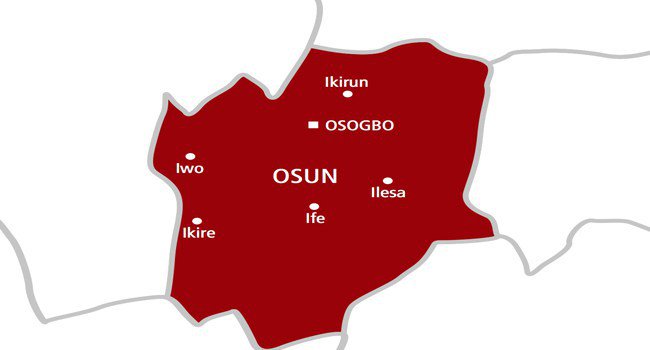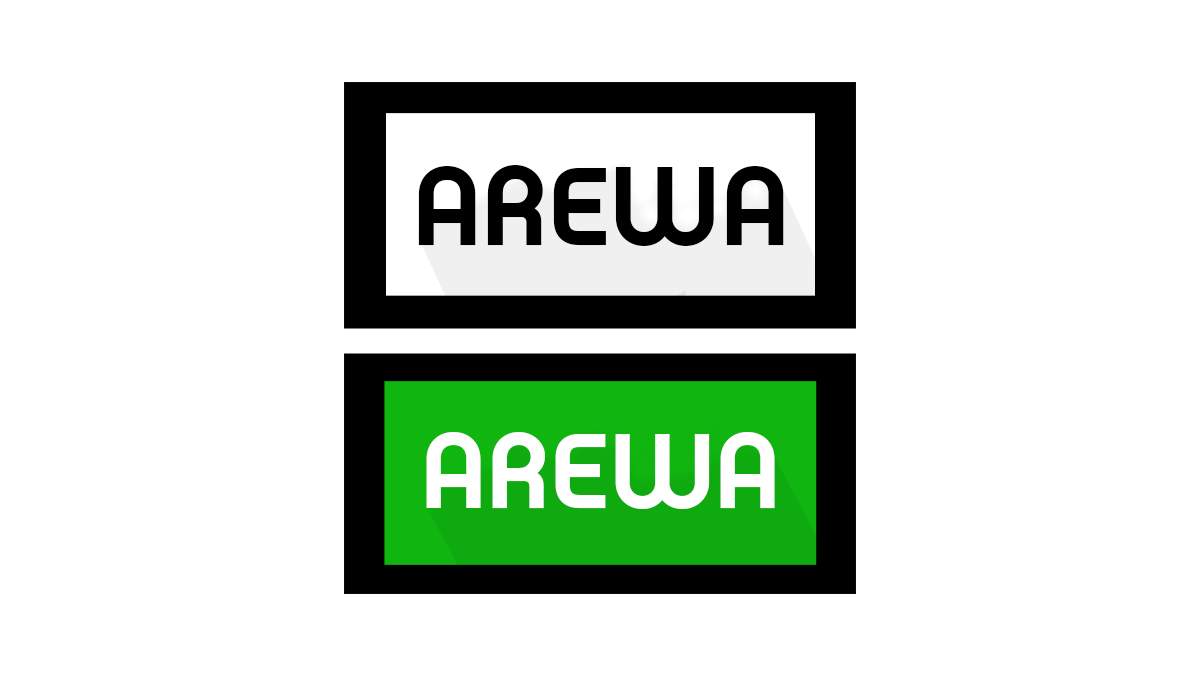
“The party primaries and resolution of disputes arising from the primaries would hold from June 24 to July 23.
“The last day for withdrawal of candidate(s) and replacement of withdrawn candidate(s) by political parties would be August 8 while the last day for the submission of nomination forms would be August 22.
“The last day of campaigns will be September 20, while the election proper will hold on 22 of the same month as provided in section 178 (2) of the 1999 Constitution (as amended).
“As parts of the commission’s roadmap for the election, Continuous Voter Registration (CRV) had been extended at the 332 wards in the state from April 11 to April 16.
“Those who were newly-captured would undergo Automatic Finger Identification System (AFIS) before their names would be ratified and added to the present list of registered voters in Osun, while the date for election proper is September 22” , Agbaje announced.
The above postulation by Mr Olusegun Agbaje, the Resident Electoral Commissioner of Independent National Electoral Commission(INEC), Osun State set an inspiring tone for a political sojourn towards the gubernatorial election in the state.
The political atmosphere quickly came alive as gladiators swiftly moved to occupy the Bola Ige government house come November 27.
First, the ruling All Progressives Congress, APC, was confronted with consistent agitation for a shift in political paradigm on the basis of geographical location, with a roaring slogan of “Osun West Agenda”.
The scope of the agitation invariably created imaginary two blocs; the so-called local politicians headed by the former Chairman of AD, AC, and ACN in in the state, and until recently, Secretary to the State Government, Alhaji Moshood Adeoti.
The second bloc, which comprises Lagos based political players, headed by the Governor of the state, Ogbeni Rauf Aregbesola, with strong insinuation of reporting to a political garrison command domiciled somewhere in Bourdillion street, Ikoyi, Lagos State.
The peak of the agitation for ceding governorship seat to the West zone eventually ended on July 19, as APC picked the Chief of Staff to the Governor, Alhaji Gboyega Oyetola, who hailed from the Central zone of the state as its standard bearer for the governorship poll through a controversial direct primary system.
By this scenario, therefore, Adeoti, a Muslim from Iwo axis of the state began a new political journey, which threw him up eventually as the flag bearer of Action Democratic Party(ADP) , as he picked an erudite Professor of Political Science, Adeolu Durotoye from the Central district as running mate.
By his political pedigree and influence, which was adjudged as pleasant and rooted in laudable human relation and ingenuity, coupled with the sentiment of West agenda, in which he emerged as the leading proponent, Adeoti ordinarily stands a candidate to beat. The roaring call of his appellation ‘Sheu’ wherever he goes across the state at a point became a political headache for the ruling party and other pundits.
He is one candidate that has visible political structure across the state, with thousands of loyal political apostles, who are of significant determinants in their various domain.
Conscious analysts have described the exit of Adeoti from the ruling APC as an Achilles’ heel for the party, and an irredeemable minus to say the least.
That Adeoti remains one of the leading candidates with intact and solid stronghold that can easily produce blocked votes is incontestable. He also enjoins huge supports from Islamic faithful across the state.
However, his abysmal performance in the governorship debate on Sunday, September 16, where he failed to articulate the blueprint of governance of his party and clear-cut road map that could salvage the state from its present economic challenges is changing the narratives against him.
Also, it has been observed that Adeoti and his party lack financial muscle to prosecute campaign that could sway enough electorate to their side, more so, when the current political trend predicates on financial considerations.
Another leading candidate in the contest is the former Chairman of Senate Committee on Appropriation, Senator Iyiola Omisore, who hailed from Ile-ife, in the Osun East senatorial district, the zone that produced the incumbent Governor, Ogbeni Rauf Aregbesola.
Omisore, a former Deputy Governor in the state, who was impeached at the end of the administration that ended in 2003 was later enmeshed in the protracted case of murder involving the late Attorney General of the Federation, Chief Bola Ige.
His election to the red chamber from Agodi prison, Ibadan, Oyo State, to represent Osun East Senatorial District on the platform of Peoples Democratic Party, PDP, later brought him to political limelight and affiliated him with new political alliance.
His defeat in 2011, when he lost to the incumbent, Senator Jide Omoworare expectedly compelled him to change political path and contested for the governorship of the state in 2014, which he also lost to Governor Rauf Aregbesola.
Omisore, after a nagging political battle in PDP navigated his coast to emerge as the flag bearer of Social Democratic Party, SDP against all odds.
His style of campaign, which is basically one-on-one engagement in all the nooks and crannies of the state, and attendant response of the electorate sent a powerful signal to every stakeholder.
He also has a notable political stronghold in Ile-Ife, his ancestral home.
Omisore has further changed political psyches of the electorate, especially the elites, who were hitherto carrying negative thoughts about him with his brilliant performance during the Sunday debate, as he exhibited deep knowledge of political economy and practical governance.
The consensus among people of the state, which cut across party line, religion, and cultural affiliations about the seeming excellent performance of Omisore has seriously changed the political narratives and perception.
Meanwhile, his personality, which many believed is of hard posture and bruised, and his political pedigree, which has been considered as obsolete in content remain his hurdles towards the quest to occupy the exalted position.
Ademola Adeleke, the candidate of Peoples Democratic Party, PDP, by providence came to the consciousness of Osun electorate first as a political entertainer and clown, who would not hesitate to display his dancing skill to the admiration of crowd at every political rally in the countdown to 2014 governorship election, in the company of his late brother, Senator Isiaka Adeleke.
The sudden demise of senior Adeleke, therefore, shifted the mantle of leadership and slot of representation at the red chamber to Ademola, who many believed was totally unprepared and unfit to occupy such position.
His unrepentant penchant for public dance and inadequate requisite mental strength to discuss critical issues of governance in the short time corroborate the above mindset.
This thinking among people, mostly political elite became more crystallised by his persistent absence in three different debates, including the one organised by British Broadcasting Corporation, BBC, in his native dialect of Yoruba.
Despite this personality defects, some still believe that Ademola will still carry the day come tomorrow, September 22.
This school of thoughts have argued that the strong economic prowess of the Adelekes, and the political structure of late Isiaka, which has been collapsed for Ademola will spree surprise in the Saturday poll.
Alhaji Gboyega Oyetola, who recently resigned as the Chief of Staff to Governor Rauf Aregbesola has been consistently described by his principal as cool, calm, and collected.
He was picked as the standard bearer of APC amid controversial process, which many of the party chieftains condemned as fraudulent and below standard of democratic gauge.
The direct primary system that produced Oyetola, against the wish of many in the party consequently polarised the party, as many left in annoyance to pitch their tents with other political parties.
Although, an administrator of rare sagacity and meticulous character, he was widely seen by many of the electorate, especially workers as the real determinant of governmental policies, which have been considered as not popular and anti-masses.
Also, there is a general concern among conscious political stakeholders that Oyetola before now built a wall around himself as a technocrat, which in a way left him with no tangible political structure that could guarantee electoral victory.
This narrative goes to assert that the APC standard bearer has no stronghold that could give him any block vote, even in his hometown, Iragbiji, in the Central zone of the state.
However, there are ripe feelings among people that Oyetola could be favoured by the murky political terrain, in which Osun is not an exception, in the same way winner emerged in the Ekiti election of July 14.
These individuals reasoned that the speculated ties of Oyetola with an opulent political dynasty in Lagos, and the state resources allegedly at his advantage, the ruling party might be coasting home to victory.
The last in the formation of the big five is Alhaji Fatai Akinbade of the Action Democratic Congress(ADC). The Engineer turned politician once held sway as the Secretary to the State government during Prince Olagunsoye Oyinlola’s tenure as the Governor of the state.
He was at a point in time the Chairman of PDP, and Commissioner for Works.
He contested the gubernatorial ticket on the platform of PDP alongside Adeleke and came third with 54 votes, before moving on to join ADC.
He was said to have been vigorously flayed in his hometown, Ogbagba, in the West Senatorial district for refusing to join forces with Akin Ogunbiyi, who is of Owu origin as Akinbade, and narrowly missed the PDP ticket with 7 votes.
Akinbade, with seeming paucity of funds to prosecute elaborate campaigns and lack of geographical stronghold to his advantage, his chance of succeeding the incumbent governor might be practically slim.
Intrinsically, and on a final analysis, the pendulum of victory is still dangling with no clear-cut movement to any political party, while the finality of the whole exercise is still a solid suspense.
As 1, 246, 915 voters with Permanent Voter cards prepare to choose among 48 candidates, the individual that will pilot the affairs of the state in the next four years, the global community is patiently watching the process and painstakingly waiting for the endpoint of the process, on the scale of fairness, freeness, and credibility.
Also, the electoral umpire has the nominal dual burden of providing a conducive voting environment for all categories of electorate to guarantee legitimacy, it must be determined to curb the emerging menace of vote buying and selling to ensure credibility and sanctity of the process.
Lastly, the Inspector General of Police, Idris Ibrahim, and other heads of security agencies must as a matter of importance devise powerful mechanism that will compel their men on the field to maintain high level of professionalism and neutrality as critical stakeholders.


